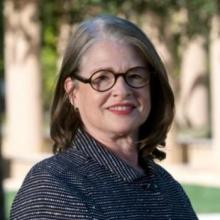What Is It
All over the world, people are living longer and having fewer children than ever before. In less than two decades, one fifth of the US population will be over 65 years old. So what do these radically changed demographics mean for how we re-imagine the shape of a human life? Should we think of the rapidly increasing older population as a blessing or a burden? And what kinds of changes should we make – both individually and as a society – to adjust to this new world awash with old folks? John and Ken remain young at heart with Laura Carstensen, Director of the Stanford Center on Longevity, in a program recorded live as part of the Bay Area Science Festival.
Listening Notes
Listening Notes: In their introduction, Ken and John explain what is so dangerous about global demographics: people are living longer while birth rates are declining. John thinks that fears about an aging America are irrational and driven by prejudices. People aren’t just living longer -- they’re living healthier. So an older population is an asset, not a detriment, to society. Ken insists that worries about these demographic trends aren’t just ageist; they’re real. Social Security and Medicare rely on an intergenerational compact in which people pay in when they’re young and only reap the benefits when they’re old. So what do the young owe the old, and what do the old owe the young? Should the answer change as the ratio of old to young changes so rapidly? After being invited onto the Philosophy Talk stage, Laura insists that the reshaping of the age structure in society is probably the greatest cultural achievement in human history. However, culture is also responsible for dictating when individuals should get an education, work, get married, and retire, and we don’t yet have a culture that supports lifespans of, say, 100 years. Although this is a problem, Laura reassures Ken and John that it is also an opportunity we should capitalize on. John hammers home the fact that older people are hardly leeches on society. Laura backs him up, pointing out that when older people work, there are more jobs for the young. In addition, money from Social Security is often passed to adult children and grandchildren; more wealth flows down generations than up. John adds that there are young people in prison who are not productive to society while there are people long dead who still are. He believes that the issue of productivity to society therefore runs orthogonal to the issue of aging. Prompted by audience questions, John, Ken, and Laura discuss the differences between how aging will impact the developing versus the developed world, empirical evidence for accumulation of wisdom with aging, and the economic effects of having an older population. Our hosts and guest also debate on whether solutions will come from politicians and policy or from culture and individuals’ decisions.
- Roving Philosophical Reporter (Seek to 6:11): Caitlin Esch speaks with a number of scientists and filmmakers who are interested in extending health or in reversing the process of aging.
- 60-Second Philosopher (Seek to 48:54): The world’s fastest talking philosopher, Ian Shoales, discusses how billionaires everywhere are tryping to “disrupt” death and old age. He warns of the fine line between magical thinking and legitimate research.



